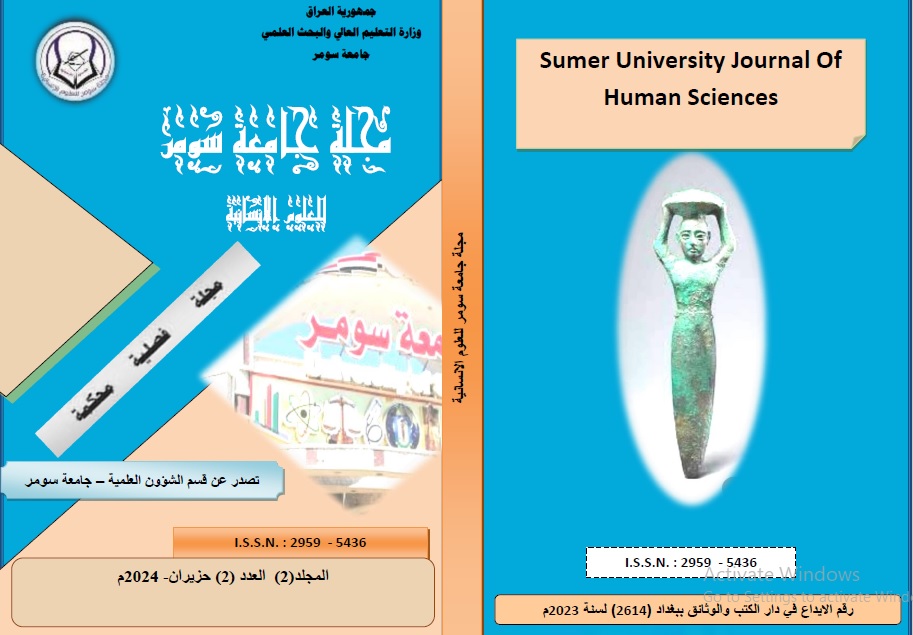The Effectiveness Of The Answer Sequence Strategy On The Logical Thinking Of Second-Year Intermediate Students
Abstract
The present study aimed at identifying “the effectiveness of the answer sequence strategy on the logical thinking of second-year intermediate students.” To verify this effect, the following null hypothesis was formulated:
At the level of significance (0.05), there is no statistically significant difference between the average scores of the students in the experimental group who read physics according to the response sequence strategy and the average scores of the students in the control group who studied physics. same subject according to the normal strategy. Method in logical thinking test.
The researcher adopted an experimental design with partial control for two equal groups (experimental group and control group). Based on this plan, the researcher chose (Al-Shaheed Hossein Al-Qazi Boys' Secondary School), which is one of the public schools affiliated with Dhi Qar General Education Department/Rifai Education Department for the academic year ( 2023). -2024). Deliberately specified. It included three sections for the second grade of secondary school, which were selected at random. Part (a) was chosen as representative of the control group and included (34) students who studied in the usual way, and part (b) was chosen as representative of the experimental group and included (36) students who studied in the usual way. according to the response sequence strategy they made. Equivalence was carried out for two groups in the following variables:
Chronological age calculated by months, intelligence test (Raven), previous knowledge test, previous knowledge achievement of physics, and logical thinking test). The scientific material was divided into four chapters, namely (Chapters One, Two, Three, and Four) of the Physics textbook for the second intermediate grade. The behavioral objectives of these chapters were formulated, which numbered (149) behavioral objectives. The researcher also prepared (40) teaching plans, with (20) teaching plans for each. Group, and with regard to the research tool, the researcher built a logical thinking test consisting of (20) items, and the validity, reliability, ease and difficulty coefficient, discrimination coefficient, and effectiveness of the false alternatives to this test were calculated.
The experiment was implemented in the first semester of the academic year (2023-2024), which began on (10/8/2023) and lasted (3) months, with two classes per week for each group. Once the experiment was completed, two research tools were applied to two research groups.
The results showed that the students in the experimental group who studied based on the response sequence strategy were superior to the students in the control group who studied traditionally in the logical thinking test. Given this issue, the researcher provided a series of recommendations, including the need for physics teachers in the intermediate schools to use teaching strategies. Modern training courses were conducted by the Directorate of Preparation and Training to develop physics teachers, and the researcher suggested:
1 - The effectiveness of the answer sequence strategy in the academic achievement of fourth grade students in chemistry and developing their creative motivation.
2- The effectiveness of the answer sequence strategy in the achievement of second-year intermediate students in biology and their visual intelligence.


